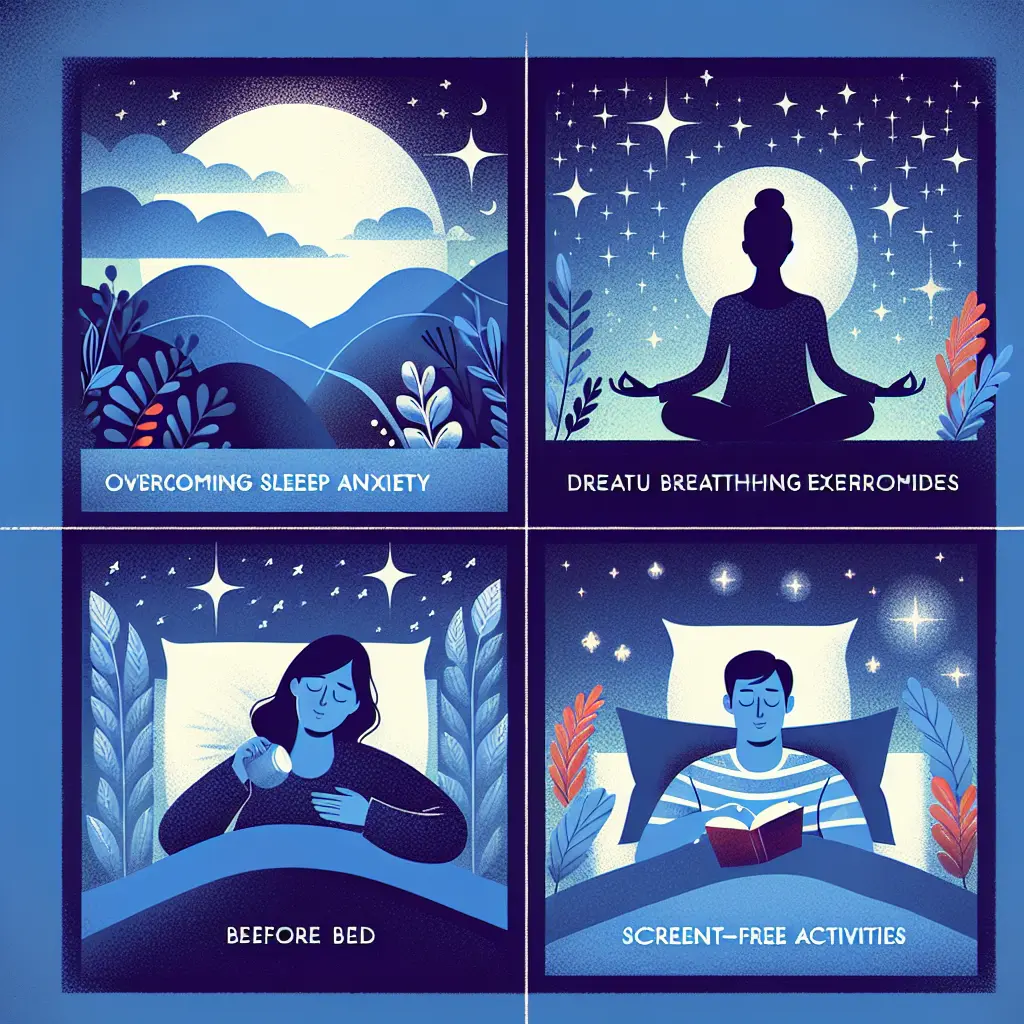In the hustle and bustle of modern life, the quest for improving sleep quality is more pressing than ever. With emerging research highlighting how crucial a good night's rest is to our overall health, understanding and implementing a consistent nighttime routine can be the key to unlocking a more vibrant, energetic life. Let's dive into how you can establish better sleep habits and explore the profound benefits of good sleep.
Why Is Sleep So Important? Sleep isn't just a period of rest—it's a critical biological process that helps us recover from the day's stresses, consolidate memories, and rejuvenate both mind and body. Recent findings underscore the importance of healthy sleep patterns. For instance, a youth survey from Fraser East revealed that mental health remains a significant concern, with poor sleep being a contributing factor (Fraser Health Authority, 2024). This aligns with global conversations around mental wellness, where subtle everyday signs are often linked to inadequate rest (Global News, 2024).
Establishing a Sleep Routine Starting with establishing a sleep routine is essential. Consistency is the bedrock of sleep hygiene practices. Going to bed and waking up at the same time every day helps regulate your body's internal clock, or circadian rhythm. This consistency aids in faster sleep onset and more restful nights.
Optimizing Your Sleep Environment A crucial aspect of a bedtime routine is optimizing your sleep environment. This means ensuring your bedroom is conducive to sleep—think cool, dark, and quiet. Consider using blackout curtains, eye masks, or white noise machines to create an ideal sleeping atmosphere. According to sleep improvement strategies, these small changes can significantly enhance the quality of your sleep (Sleep Foundation, 2024).
Understanding Gender-Specific Needs Interestingly, studies including one recent inquiry into whether women need more sleep than men, suggest that different biological processes might influence sleep needs between genders (Journal of Sleep Research, 2024). Tailoring your sleep routine to fit these specific needs can be beneficial in fostering optimal health.
Nighttime Rituals and Dietary Impact
Nighttime Rituals for Better Sleep Incorporating nighttime rituals can significantly enhance your sleep quality. These might include winding down with a book, practicing meditation, or doing gentle stretches. Such activities signal to your body that it's time to slow down and prepare for sleep, fostering better sleep habits.
Diet and Sleep Quality What you eat also plays a role in how well you sleep. Caffeine and heavy meals close to bedtime can disrupt your sleep schedule. Instead, focus on light evening meals and consider herbal teas that encourage relaxation. Recent advice from health experts also suggests that even small changes like adjusting your diet can combat morning breath, indirectly promoting better rest (Healthline, 2024).
The Role of Physical Health in Sleep Quality Physical health significantly impacts sleep quality. Menopausal women, for example, often experience sleep disturbances. Implementing targeted strategies such as maintaining a cooler bedroom can make going through menopause more comfortable and improve sleep consistency (Menopause Center, 2024).
Moreover, staying vigilant about health during different seasons is crucial; for instance, monsoon seasons bring a surge in infections which can disrupt sleep. Adhering to preventive tips to minimize these risks is crucial (CDC, 2024).
Stress Management and Special Populations
Managing Stress for Better Sleep Mental stress is a common culprit behind disrupted sleep patterns. Strategies to manage stress before bed can be crucial in improving sleep quality. This might include journaling or using relaxation techniques such as deep breathing exercises.
Sleep and Special Populations Different life stages and conditions might require specific adjustments in one’s sleep routine. Pediatricians emphasize the importance of establishing robust sleep routines early on to ensure children are alert and healthy for school (American Academy of Pediatrics, 2024). Likewise, addressing unique conditions like those experienced by inmates at facilities like Laval women's jail requires tailored interventions to promote better health outcomes through improved rest (Human Rights Watch, 2024).
Tracking Your Progress Maintaining a sleep diary or using apps that track sleep patterns can help you understand your personal sleep habits better. This data can be invaluable in adjusting your bedtime routine for optimal results.
The Future of Sleep Technology With advancements in technology, the future looks promising for those seeking enhanced sleep quality. Detailed market analysis predicts significant growth in sectors like urology imaging systems and bleeding control kits, indirectly highlighting an increase in overall health consciousness and its impact on sleep (Market Research Future, 2024).
Incorporating consistent nighttime routines isn't just about avoiding fatigue; it's about embracing an overall lifestyle that enhances mental clarity, physical health, and emotional well-being. By optimizing your bedroom environment, sticking to a consistent sleep schedule, engaging in relaxing pre-sleep rituals, and managing diet and stress, you can profoundly improve your quality of life through better sleep.
As we've explored various facets of how to sleep better—from the basics of establishing a routine to understanding the nuanced needs based on gender and health conditions—it’s clear that the journey to improved rest is both necessary and worthwhile.
Remember, each small step towards better sleep habits is a leap towards a healthier, happier you.
Warm wishes for sweet dreams.








Leave a Comment